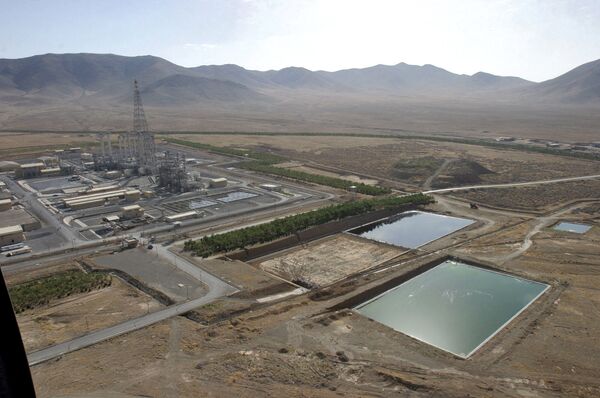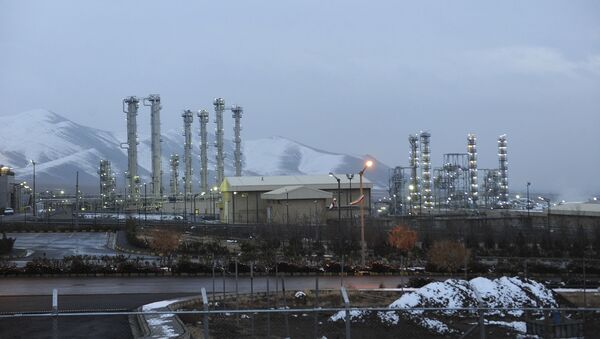Tehran will announce further steps towards reducing its implementation of obligations under the Joint Comprehensive Plan of Action (JCPOA) on 17 June, Tasnim News Agency reported, without specifying the source of the information. The announcement will reportedly be made at the Arak Nuclear Plant, where a new and more effective method of heavy water production will be presented.
The news agency reported that Iran will announce its intention to increase its stockpiles of enriched uranium and heavy water, but didn't elaborate on what other steps the country could take in scaling back on its JCPOA commitments.
The report came in the wake of Iranian President Hassan Rouhani announcing that his country would continue to reduce its commitments under the nuclear deal unless it receives some "positive signals" from other signatories in regards to protecting Iran's economy from US sanctions.

The president didn't specify what signals the country wants to see, but Tehran has previously repeatedly called on signatories, especially EU states, to ensure the fulfilment of their end of the nuclear deal and to create a mechanism that would allow businesses to deal with Iran without having to fear American sanctions. The EU has come up with the so-called INSTAX mechanism, but Tehran hasn’t found it to be a sufficient solution.
Iran first announced that it would start backtracking on some of its "voluntary" commitments under the JCPOA within 60 days on 8 May – a year after the US unilaterally withdrew from the accord, putting the fate of the deal in question. At the same time, Tehran has vowed to return to JCPOA compliance if the remaining signatories to the deal begin to fulfil their obligations under the agreement.
Following the withdrawal from the JCPOA in 2018, the US imposed sanctions against Iran and vowed that it would target any company that deals with the affected entities of the Islamic Republic. The remaining parties to the Iran nuclear deal have slammed the US move and vowed to salvage the agreement, as well as ensure that their firms are able to continue operating in Iran. Despite this, many companies have since stopped working in the country, fearing US sanctions.


